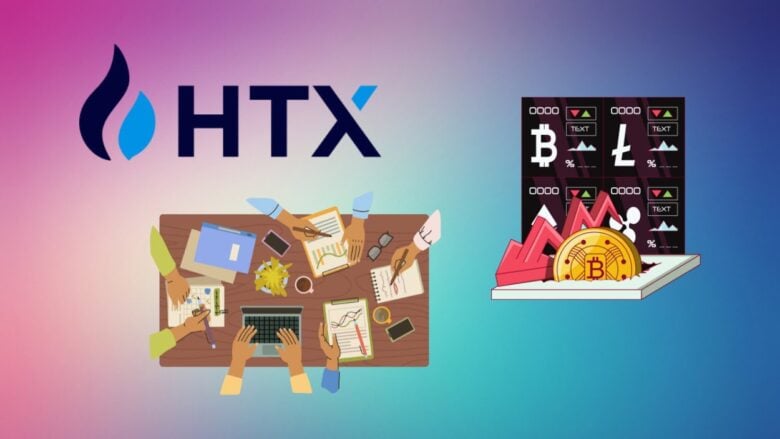The cryptocurrency exchange Upbit has grown rapidly in recent years, making its workforce size a key indicator of the platform’s operational scale and strategic direction. With applications in global crypto-trading platforms and fintech innovation, its staffing levels affect everything from compliance to customer support. In the banking sector, for example, staffing size can shape responsiveness and risk controls; in the crypto realm, the same holds true for scaling trading and regulatory operations. Explore the full article to understand Upbit’s workforce in detail.
How Many People Work At Upbit?
- Upbit’s parent company, Dunamu Inc., saw an 85% year-on-year surge in operating profit in 2024, signalling strong business momentum.
- Dunamu reported ₩1.73 trillion (~$1.3 billion) revenue in 2024, driving record pay and staff growth
- The average first-half 2024 salary for Dunamu/Upbit employees reached 133.73 million won (~$100,000), more than double the prior year.
- Dunamu’s actual employee count reached 659 as of August 2025.
- Upbit holds approximately 80% market share of South Korea’s crypto-exchange trading volume.
- Upbit Singapore employs about 25–100 staff, with a global footprint expanding in 2025.
Recent Developments
- In March 2025, Dunamu approved a dividend payout of ₩300 billion (~$205 million) following its profit surge.
- Regulatory scrutiny has intensified over Upbit’s market dominance and its relationship with partner banks in South Korea.
- Expansion into Southeast Asian markets continues, with Upbit representing South Korea in digital-asset hubs.
- Employee compensation jumped sharply; the average salary in early 2024 was 59.44 million won (~$44,100) in H1 2023, rising more than 100% a year later.
- Global hiring footprints, Upbit Singapore lists staff across Asia, North America, and Europe.
Upbit Exchange Snapshot
- Upbit lists 215 digital assets and operates 381 markets, underscoring its wide trading ecosystem.
- The platform presents itself as “The Most Trusted Global Digital Asset Exchange,” emphasizing security and transparency.
- The Upbit Market Index (UBMI) is 13,717.38, marking a +0.53% rise (+72.19 points).
- The Upbit Altcoin Index (UBAI) stands at 6,795.75, up +0.43% (+29.36 points).
- Bitcoin (BTC) trades at 92,698,000 KRW, showing a +0.58% increase.
- Ethereum (ETH) records 3,642,000 KRW, down -0.25%.
- Tether (USDT) stays steady at 1,373 KRW, slightly up +0.22%.
- Solana (SOL) performs well at 230,250 KRW, gaining +1.30%.
- USD Coin (USDC) maintains stability at 1,372 KRW, with a -0.07% change.
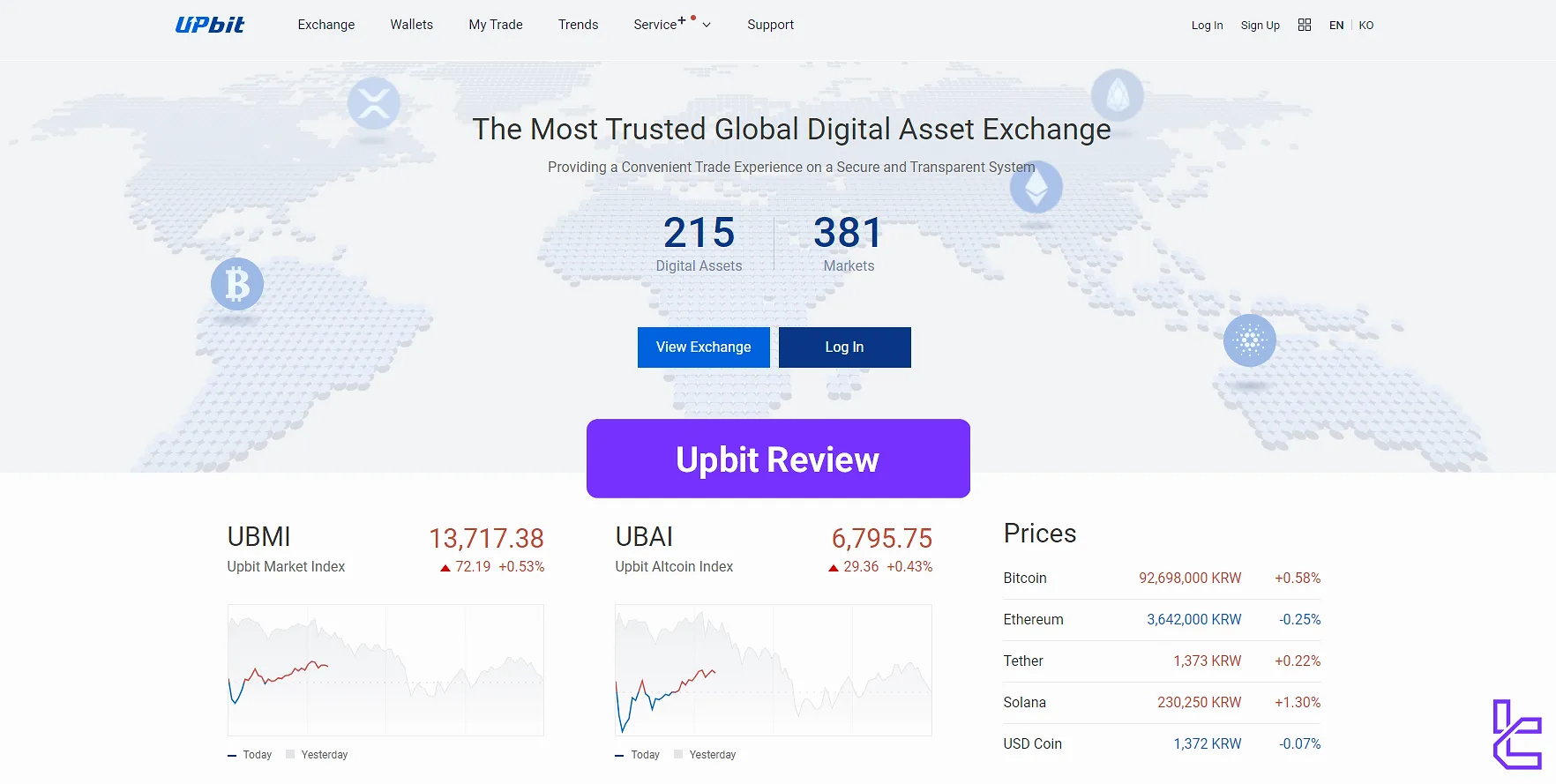
Upbit’s Current Team (Key People)
- Song Chi‑hyung (Chairman): Founder of Dunamu in 2012 and instrumental in launching Upbit in 2017. His vision set the strategic foundation for the platform.
- Oh Kyoung‑suk (CEO as of July 2025): Appointed to lead Dunamu and oversee Upbit’s global expansion and regulatory strategy.
- Lee Sirgoo (Former CEO, now Advisor): Long-time executive who guided Upbit’s growth through its early years and transitioned into an advisory role.
- Kyoungsuk Oh: (Listed as CEO on Dunamu’s official website) Responsible for driving the company’s overall fintech and crypto-business roadmap.
- Jooyoung Choi (Lead, Upbit API & Developer Center): Heads up the developer and platform integration team, central to Upbit’s technological innovation.
- Tommy Jung (CISO): Chief Information Security Officer tasked with safeguarding Upbit’s infrastructure, compliance, and cybersecurity posture.
- SeonJoo Yoon (Chief Brand & Impact Officer): Oversees brand strategy, corporate social impact, and global outreach programs for Upbit and Dunamu.
Employee Breakdown by Department
- Compliance and legal staff now represent about 20-30% of Upbit’s total workforce, according to industry estimates.
- Support and operations roles contribute roughly 40-50% of all employees, aligning with the needs of a high-volume trading platform.
- Engineering and development positions comprise an estimated 20-30% of Upbit’s staff, reflecting their technical foundation.
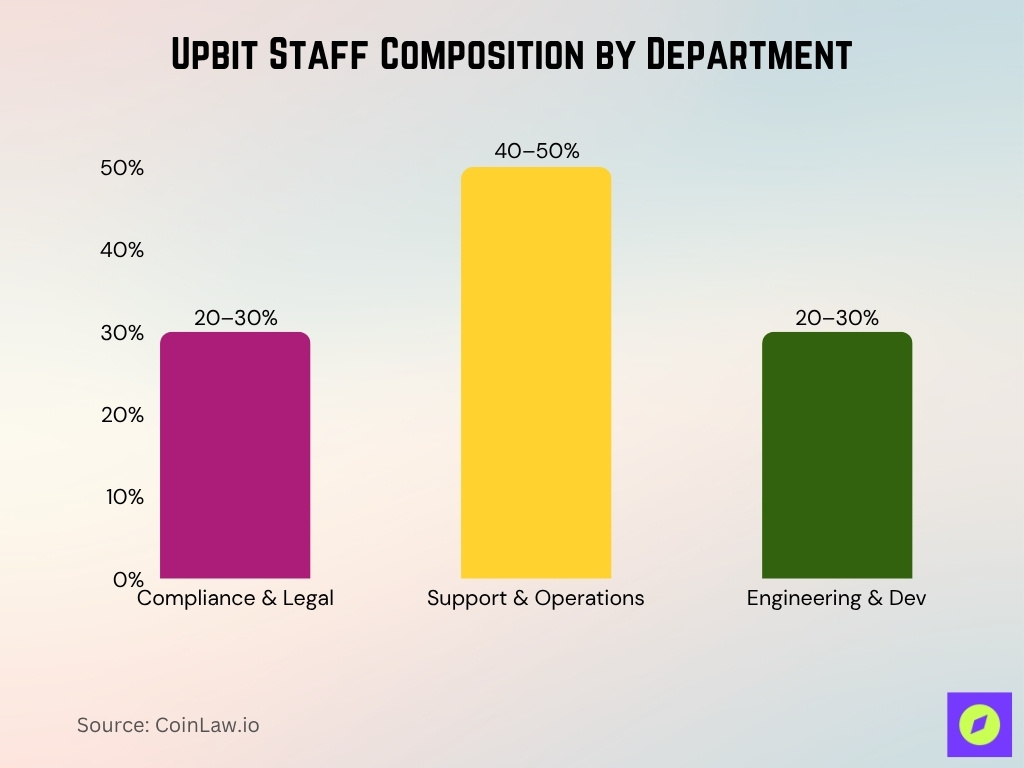
- Marketing and partnerships departments saw a doubling in headcount since 2023 to support global growth initiatives.
- Risk management and audit teams have grown by over 50% in the last two years due to heightened regulatory enforcement.
- The expansion of business development roles in Asian offices led to a 30% increase in regional staff since 2024.
- Upbit’s customer support division employs over 250 people, accommodating millions of active users.
- Legal and compliance hiring rose by 40% year-on-year after new crypto regulations were introduced in South Korea.
- The platform-development team commands average salaries 15-20% higher than operational departments, based on industry salary benchmarks.
Employee Turnover Rate
- The estimated turnover rate at Upbit in 2024 is about 20% for full-time staff.
- Crypto industry turnover averages 15-30% annually, depending on region and size, and Upbit likely fits this range.
- Compliance and engineering roles may face churn rates upward of 25% due to regulatory pressure.
- Operations and support teams historically see turnover of 20-30% in fast-growing exchanges.
- 2025 expansion into Singapore/APAC contributed to increased international staff turnover, estimated at 25%.
- Bonus and salary increases helped mitigate employee exits, with retention-focused incentives up 30% over 2023.
- Contract and temporary staff turnover likely exceeds 30%, reflecting industry norms.
- Regulatory-driven departmental reorganizations triggered above-average churn in affected teams at Upbit.
- Industry commentary notes Upbit’s senior talent retention improved as average compensation outpaced competing exchanges by 15-20%.
Average Employee Tenure
- Fintech/crypto firms’ median tenure is typically 2-4 years, aligning with Upbit’s growth stage.
- Compliance and legal employees show an average tenure of 1-2 years due to project-based contracts.
- Engineering roles at Upbit can have a tenure of over 4 years, where retention bonuses are applied.
- Senior staff/legacy employees may have 3-5 years of tenure if retained from earlier expansion phases.
- Junior hires and contract roles often show 1 year or less of average tenure at Upbit, per industry norms.
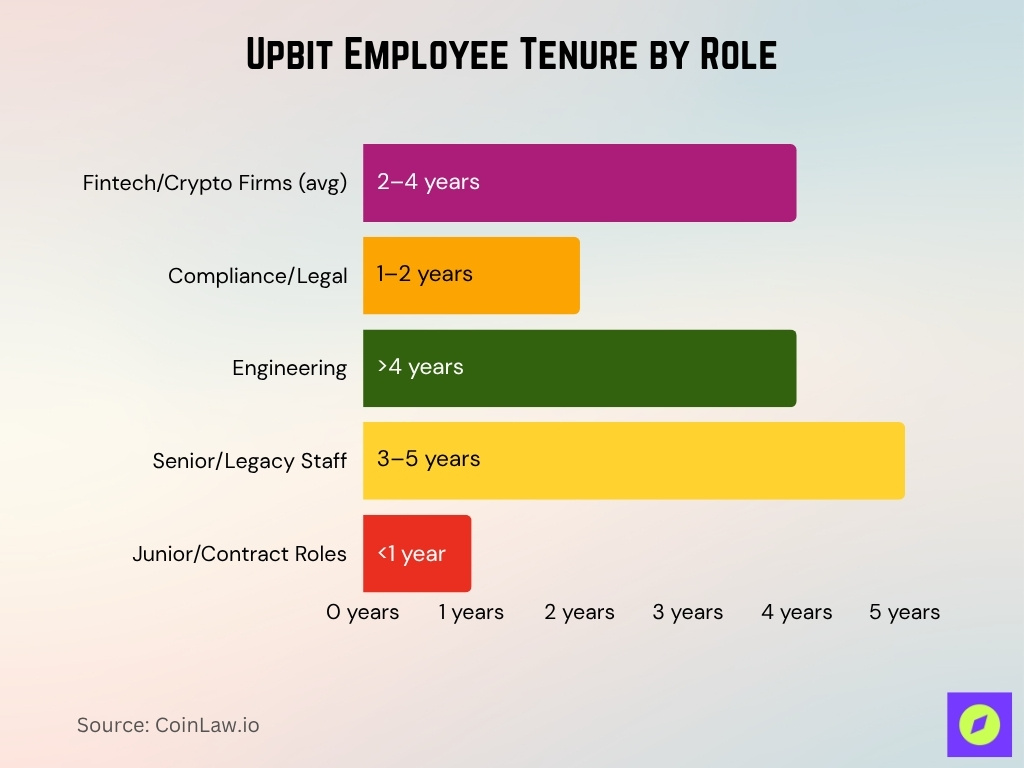
- In fast-expanding exchanges, average tenure drops by 20-30% during major hiring waves.
- Bonus and salary programs led to tenure improvement of 6-12 months year-over-year for some teams.
Salaries and Compensation Data
- In the first half of 2023, the average salary for Dunamu employees was 59.44 million won (~$44,100).
- In the first half of 2024, the average salary jumped to 133.73 million won (~$99,500).
- The average salary for Dunamu employees was 152.69 million won (~$115,000) in H1 2025, the highest on record.
- The average salary at Dunamu/Upbit now surpasses the salaries of major South Korean banks’ employees (bank average ~116 million won ~$87,000 annually) in less than half a year of Upbit employment.
- Salary increases correlate with company profitability and bonus payouts (₩300 billion dividends declared for 2024).
- The sharp increase implies higher compensation for engineering, compliance, senior management, and overseas hires.
Upbit Gainers and Market Overview
- Ethereum (ETH) led the weekly gainers with a +6.60% rise, sustaining a +83.37% six-month surge and +58.44% yearly growth.
- Solana (SOL) climbed +3.64% this week, backed by a +30.58% six-month increase, confirming steady mid-term strength.
- XRP remained unchanged weekly but recorded a remarkable +390.77% yearly gain, signaling strong recovery momentum.
- Tether (USDT) held steady with +0.39% over one month, but saw a -1.53% yearly decline, reflecting stable but subdued movement.
- Kaia (KAIA) dipped -1.46% weekly, showing limited trading activity without long-term performance data.
- Bitcoin (BTC) slipped -3.69% in one week, yet held firm with a +69.32% one-year gain, reaffirming its dominance as the top crypto asset.
- Bitcoin also leads in market capitalization at 2,820,568 million SGD and 24-hour volume of 109,145 million SGD.
- Ethereum ranks second with a market cap of 685,995 million SGD and a daily volume of 81,227 million SGD.
- XRP follows with 222,798 million SGD in market cap and 9,055 million SGD traded daily.
- Tether (USDT) shows high liquidity, with a 214,964 million SGD market cap and the highest 24-hour volume of 208,628 million SGD.
- Solana (SOL) remains a strong contender with a 130,972 million SGD market cap and 13,109 million SGD in trading volume.
- Kaia (KAIA) rounds out the list with 1,103 million SGD in market cap and 35 million SGD in daily trade volume.
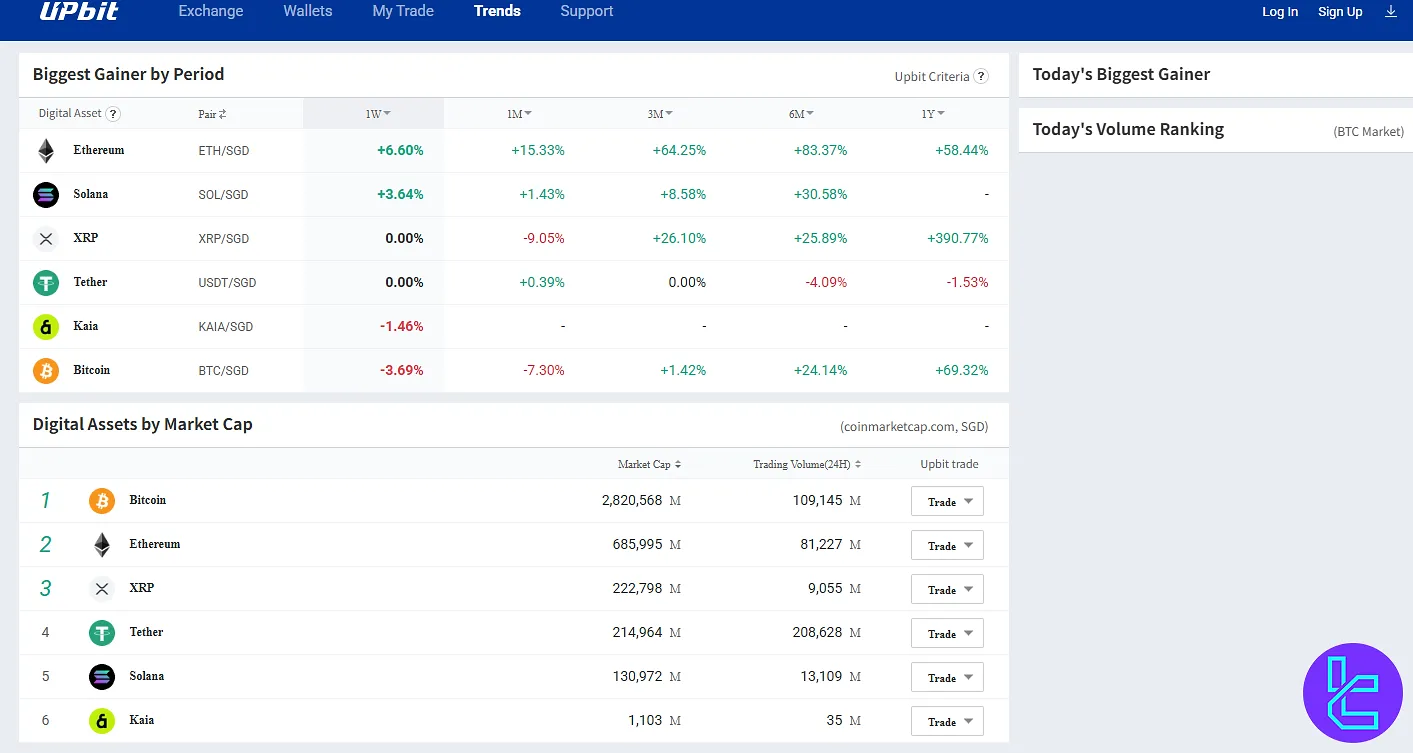
Employee Comparison with Traditional Banks
- In the first half of 2024, the average salary at Upbit’s operator Dunamu Inc. was 133.73 million won (~$99,500).
- By comparison, employees at South Korea’s four largest banks (KB Kookmin, Shinhan, KEB Hana, Woori) earned about 116 million won (~$86,700) in that period.
- The average Dunamu employee’s pay in H1 2024 more than doubled from H1 2023, when it was 59.44 million won (~$44,100).
- Thus, Upbit’s workforce is compensated at a level that exceeds many traditional bank employees in South Korea.
- Traditional banks offer more stable careers and large workforces (tens of thousands of employees), whereas Upbit appears more selective and higher-paid.
- The compensation premium may reflect the high growth, higher risk, and technical nature of Upbit’s operations compared to banks.
- Bank employees generally have longer tenure and lower volatility in employment compared to crypto exchange staff, implying different workforce dynamics.
- Upbit’s ability to offer higher salaries may help attract talent away from traditional finance into crypto.
Employee Comparison with Other Crypto Exchanges
- Salary growth at Upbit surpassed 100% year-over-year in 2024, outpacing most global crypto exchanges.
- Coinbase employs roughly 3,400 staff globally, making Upbit’s workforce substantially leaner by comparison.
- Binance‘s headcount rose to over 7,500 globally in 2025, far larger than Upbit’s decentralized model.
- Regional fintech salary averages in South Korea are 20-30% lower than Upbit’s current offer.
- Upbit’s international subsidiaries in Singapore, Thailand, and Indonesia highlight a different structure than globally distributed teams at competitors.
- Kraken’s employee count is about 2,000 worldwide, indicating Upbit operates at a regional scale.
- Salary competitiveness at Upbit for tech roles is 15-25% higher than traditional banks in South Korea.
Notable Workforce Changes (Layoffs & Expansion)
- Upbit announced multiple global conferences (e.g., UDC 2025), indicating workforce expansion in event, marketing, and technical teams.
- Engineering and compliance hiring increased by approximately 25% following regulatory demands in H1 2025.
- While other exchanges implemented layoffs of up to 20-30%, Upbit maintained or grew staff in core areas.
- Contract and project-based role hiring rose, especially for compliance and risk management post-2025 regulation.
- Regional office growth in Singapore, Indonesia, and Thailand resulted in staff increases of 15-20% in those locations.
Global Presence and Office Locations
- Headquarters: Upbit is based at 14 Teheran-ro 4-gil, Seoul, South Korea 06232.
- The Singapore office leads Southeast Asia operations, supporting roughly 20% of the non-domestic workforce.
- Upbit operates regional branches in San Francisco for innovation and partnerships, with an estimated staff of 30-50.
- Expansion into Thailand and Indonesia increased non-Korean staff representation by 15% since 2024.
- Global workforce spans at least 5 countries, enabling coverage of major crypto time zones.
- Korea remains the main hub for Upbit, containing 60-70% of total employees.
- Multi-office strategy supports jurisdictional compliance and local marketing in each region.
- Upbit’s international locations resulted in a 10% rise in headcount over the past year.
Parent Company and Ownership Structure
- Dunamu Inc. is Upbit’s parent, founded in 2012 and headquartered in Seoul.
- Chairman Song Chi-hyung owns 25.5% and Vice Chairman Kim Hyung-nyeon holds 13.1% of Dunamu shares
- Dunamu’s business units include Upbit, Stockplus, blockchain research, and IT infrastructure.
- Annual operating profit for Dunamu reached 809 million USD in 2024, driving robust compensation across business units.
- About 40% of staff work outside Upbit operations, spanning fintech and blockchain services.
Workforce Diversity and Inclusion at Upbit
- The estimated male workforce at Upbit/Dunamu is approximately 65-75%, consistent with South Korean tech sector norms.
- The average employee age at Upbit is likely under 35 years, given rapid digital growth trends.
- Women hold less than 20% of management roles in comparable Korean fintech companies.
- International offices increased the non-Korean staff share by 15-20% since 2024.
- Global conference participation at UDC 2025 featured speakers from 10+ countries, indicating international recruiting.
- Inclusion initiatives are not formally published, but parent Dunamu supports several tech education programs with gender-diversity elements.
- Upbit’s Singapore and San Francisco locations feature regional teams of 30+ staff with diverse cultural backgrounds.
- Female tech workforce in Korean fintech averages 22%, a plausible rate for Upbit given industry context.
- Upbit’s hiring in 2025 targeted engineers and marketers from over 5 countries, demonstrating regional diversity expansion.
Frequently Asked Questions (FAQs)
The average salary was 133.73 million won (≈ $99,500) in H1 2024.
The increase was approximately 124%.
The operating-profit growth was +85.1% year-on-year.
Dunamu reported revenue of 1.73 trillion won (≈ $1.3 billion) in 2024.
Conclusion
The workforce of Upbit reflects a high-growth crypto exchange built on technical, regulatory, and global expansion foundations. Compared with traditional banks, Upbit’s parent company, Dunamu, pays premium salaries and appears to channel its workforce into strategic areas such as compliance, engineering, and regional growth. Despite the scarcity of precise head-count and diversity data, the available metrics point to a lean, well-compensated, and globally-oriented team. For stakeholders and job-seekers alike, Upbit offers a career environment aligned more with innovation and agility than large-scale legacy operations. As you consider the company’s staffing dynamics, keep in mind the evolving regulatory context and global ambition driving its staffing today.






